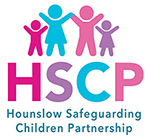Female Genital Mutilation (FGM) Guide For Parents
Female Genital Mutilation (FGM) is also known as female circumcision or female genital cutting. FGM is defined by the World Health Organisation as the range of procedures which involve “the partial or complete removal of the external female genitalia or another injury to female genital organism whether forms cultural or any other non-therapeutic reason”. It is a deeply rooted tradition which is practiced globally including countries in Africa, Asia and the Middle East.
FORWARD UK estimates that’s as many as 6,500 girls are at risk of FGM within the UK every year and different countries have different words for terms and words for FGM.
FGM is thought to be a way of ensuring virginity and chastity. It is used to safeguard girls from sex outside marriage and from having sexual feelings. FGM is most often claimed to be carried out in accordance with religious beliefs but FGM is not supported by any religious doctrine. FGM serves as a complex form of control of women’s sexual and reproductive rights. Procedures are mostly carried out on young girls between infancy and age 15, and occasionally on adult women.
Short term health problems include severe pain, difficulty passing urine, bleeding, infection and death. For some types of FGM long-term problems include difficulty passing urine and long painful periods. For some types there may be a long scar, which can make sex and childbirth difficult. Recurrent infections can lead to infertility. Women may also suffer from post traumatic stress disorder.
Despite the harm it causes, many women and men from practicing communities consider it to be normal to protect their cultural identity, ensure their daughters marriageability and place within the community.
There is lots of information and support available through a range of services and websites:
- FGM Helpline Email: fgmhelp@nspcc.org.uk
Telephone: 0800 028 3550 - FORWARD (Foundation for Women’s Health Research and Development)
- Southall Black Sisters 21 Avenue Road, Southall, UB1 3BL
Email: info@southallblacksisters.co.uk
Phone: Helpline: 020 8571 0800
Enquiries: 020 8571 9595 - Metropolitan Police Service;
Project Azure 0207 230 8324 - NSPCC – FGM legislation
- NSPCC- Who is affected?
- NSPCC – Prevention and Protection
- FORWARD – Support
- FORWARD website
- Women’s Aid – cover your tracks online
